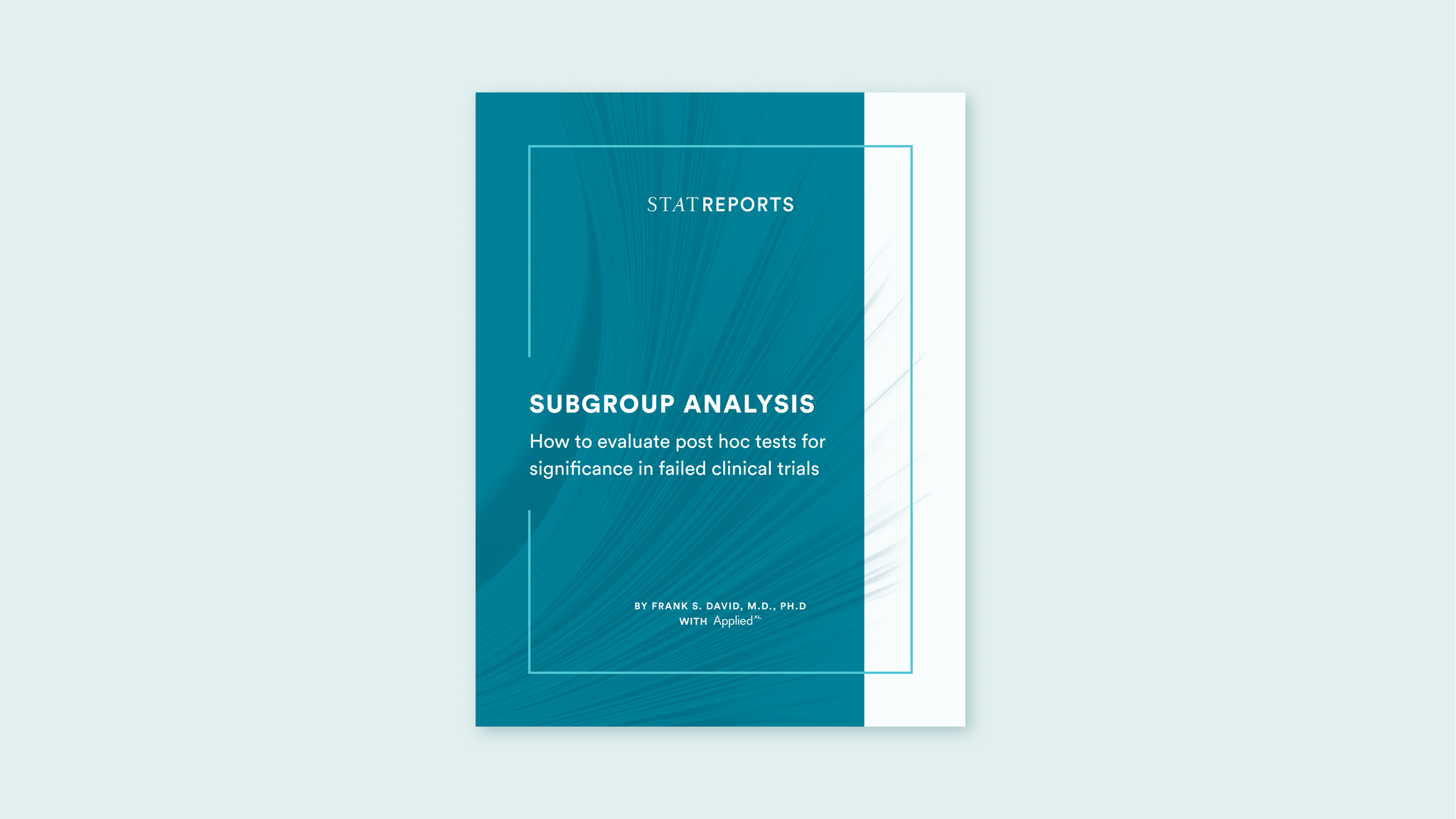Clinical trial subgroup analysis: How to evaluate post hoc tests for significance in failed clinical trials
$149.00
If you spend enough time following biotech, you’ll encounter a common situation: A big clinical trial fails, but the company points to a glimmer of an effect in a subset of patients. The next thing you know, the firm is launching a big follow-up study focused on that subgroup, often accompanied by a big fundraising push. There are good reasons to be skeptical of these follow up studies, but they can yield important insights that are ultimately green-lighted by regulators.
In this report, biopharma consultant Frank David, M.D., Ph.D., author of two highly popular drug industry handbooks — “The Pharmagellan Guide to Analyzing Biotech Clinical Trials” and “The Pharmagellan Guide to Biotech Forecasting and Valuation,” helps to evaluate these subgroup analyses as either a source of hope or a red herring.
It's crucial to neither be overly optimistic nor dismissive of post hoc subgroup analyses. Instead, our report emphasizes the significance of focusing on the data. This report is designed to help investors, researchers, patients, and others interested in the success or failure of an experimental drug navigate this uncertain terrain with clarity and data-driven insights. By doing so, you can make a clear-eyed assessment of the likelihood that a trial replicating post hoc findings will yield positive results.
Interested in more reports on clinical trials?
Gain special access to Frank David’s clinical trial series for a fraction of the cost. This bundle deal gives you a discount on all three reports focused on clinical trials.
Add the below reports to your cart and use the discount code BUNDLE at checkout to save $150.

